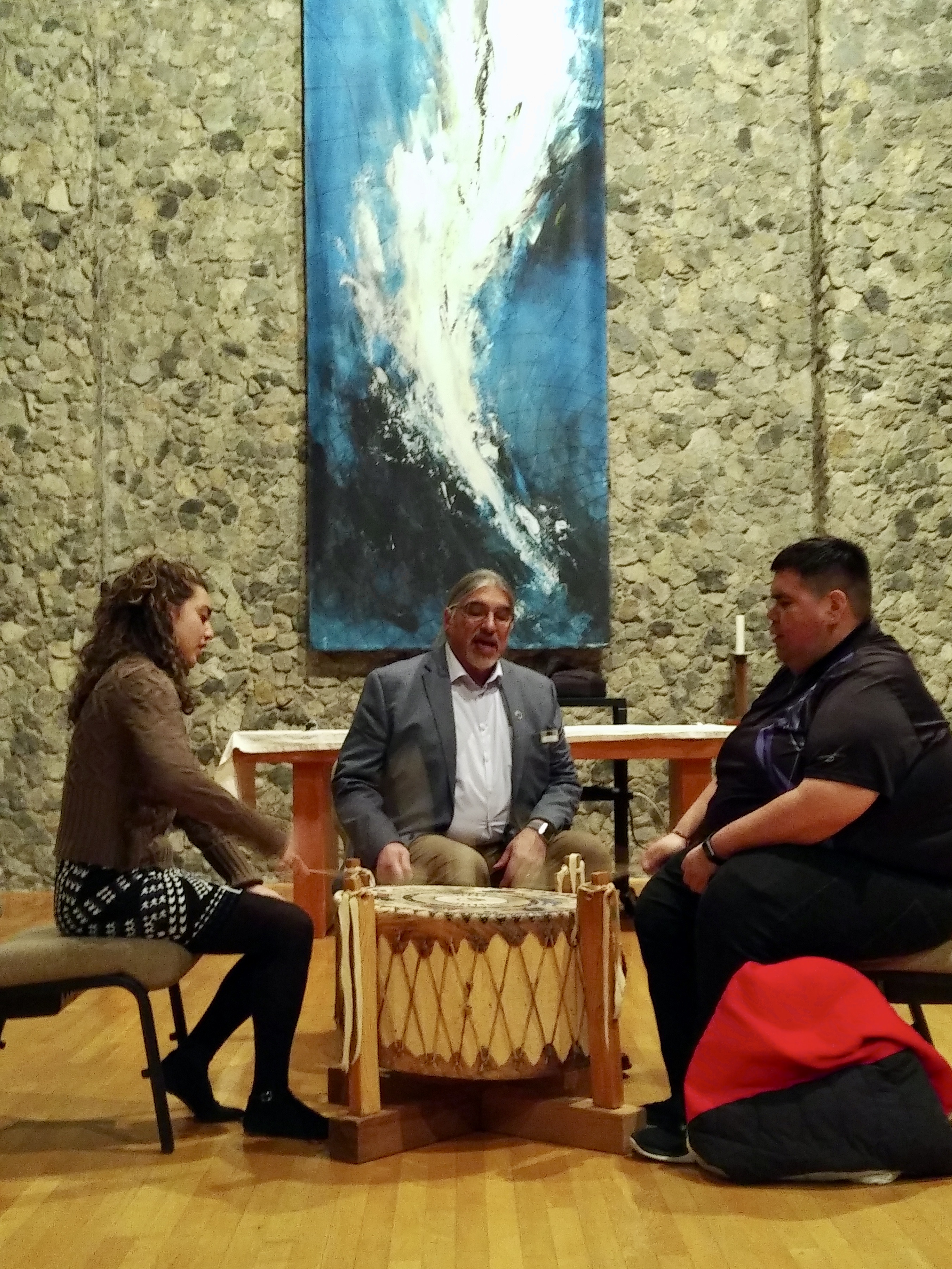A new book published by the Canadian Race Relations Foundation aims to bring together a variety of perspectives about how different religious and faith traditions understand and promote reconciliation in Canada. In the wake of the report of the Truth and Reconciliation Commission, there has been a growing public discourse in Canada about how people are working to heal their pain and suffering and walk together on a path of reconciliation.

The book, Spirit of Reconciliation: A Multi-Faith Resource, is edited by Ray Aldred and Laura Duhan-Kaplan, both from the Vancouver School of Theology (VST).
It was launched with a public event at the VST on February 25, 2020. Ciprian Jauca, a member of the National Spiritual Assembly of the Baha’is of Canada, attended on behalf of the Baha’i community. The event was opened with a welcome song by Melaney Gleeson-Lyall from the Musqueam Nation, and attended by about 70 people.
Lilian Ma, Executive Director of the Canadian Race Relations Foundation described the purpose of the volume as helping readers “to discuss steps towards reconciliation and stimulate conversations towards a society of acknowledging past wrongs and achieving peace and harmony moving forward.”
The book includes chapters written by authors presenting perspectives informed by a number of religions and traditions, including Indigenous spirituality, Christianity, Judaism, Sikhism, the Baha’i Faith, Buddhism, Hinduism, and Islam.
While most chapters were written by a single author, the chapter “Advancing the Conversation on Reconciliation as a Spiritual Process,” was published as a contribution from the Baha’i Community of Canada. It was based upon a “thought piece” produced by the Office of Public Affairs, with the intention of stimulating thought and dialogue on the process of reconciliation in Canada.
The chapter considers some of the qualities of a conversation about reconciliation that views it as a spiritual process:
Reconciliation invites us to engage with one another in a spirit of selfless love. In this spirit, we overcome misunderstandings through patient and respectful dialogue. We use our cultural differences as opportunities to learn from one another. Many Indigenous cultures and the Bahá’í teachings agree: love includes cooperation, reciprocity and mutual aid. We should think of all people as relatives. As the Bahá’í teachings put it, “Shut your eyes to estrangement, then fix your gaze upon unity.” We should “not be content with showing friendship in words alone,” rather, our hearts should “burn with loving kindness for all who may cross [our] path.”
The chapter also reflects on the ways that conversation can be a helpful tool for reconciliation, the kind of education required by young people, and how we can envision a process of social change.

